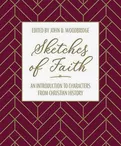In the film Dead Man Walking, as Matthew Poncelet’s hope of reprieve from his death sentence diminishes, he comes under increasing pressure from Sister Prejean to confess to the crime for which he is being punished. Although the film is based on Sister Prejean’s campaign against the death penalty, it leaves open the interpretation that it is only the certainty of death that finally compels Matthew to confess his guilt.
Walking round the National Gallery’s exhibition of late Caravaggio, I got the same sense of a man under sentence of death, forced to confront his own mortality.
In the early 1600s Caravaggio was one of the most successful artists of his day. Born Michelangelo Merisi in 1571, he was brought up in northern Italy in the town of Caravaggio — hence his nickname — but rose to stardom in Rome as a painter of dramatic realism. After decades of convoluted, artificial work by the Mannerists, Caravaggio’s painting came as a powerful restorative, influencing artists from Naples to the Netherlands. He used ordinary people as models, even for the most significant figures in his religious scenes: Jesus’s disciples at the Supper at Emmaus are shown as lined, aged men with shabby clothes. He did not stint with the gore as Judith beheads Holofernes. And Caravaggio created strong contrasts of light and shade, like spotlights on the stage, to focus our attention and heighten the drama, as when, in the famous ‘Calling of Matthew’, a shaft of light through an open door picks out Jesus’s face, his beckoning hand and the face of Matthew.




